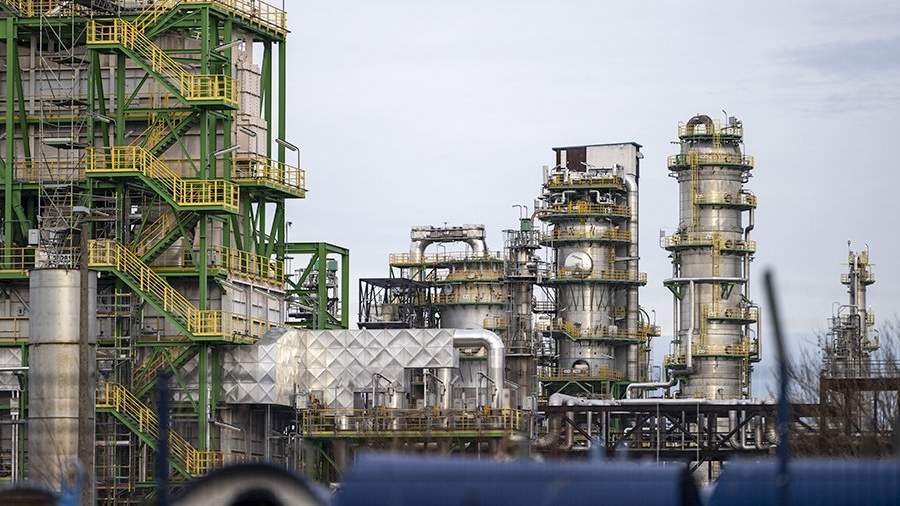
How Washington will save face over failure of Russian oil price limit ?
By Rhod Mackenzie
For the past five months, Russian oil has been traded above the $60 price limit set by Western nations. This oil is transported by numerous parties including Greek shipping companies and tankers that have lacked Western registration and insurance. As a result, Russia's monthly income has exceeded the amount of the previous year's. In response, Washington has attempted to tightened restrictions and is pressuring tanker proprietors. Analyts believe that the most that the United States can achieve is the return of Russian oil exports to the grey market.
The US Treasury Department's Office of Foreign Assets Control has issued notices to shipping companies in 30 countries regarding 100 tankers suspected of transporting Russian oil sold above the price limit.
According to Reuters, the US department declined to comment, but clarified that they are committed to maintaining the price ceiling and reducing Russia's income. An agency insider reported that certain vessels are being investigated for exporting oil from the Baltic port of Primorsk and Far East's Kozmino.
Earlier in October, the US Treasury enforced sanctions against two minor shipping operators, Ice Pearl Navigation and Lumber Marine, from Turkey and the UAE, and two tankers under their ownership - SCF Primorye and Yasa Golden Bosphorus. The assets of these companies that fall within American jurisdiction should be blocked, along with any transactions in dollars and transactions with US legal entities, including insurers.
Previously, only Western companies were prohibited from transporting Russian oil above the price limit. However, even this measure has not been entirely effective. According to the AIS data of ships, almost everyone is still transporting the sanctioned raw materials. This is despite the fact that the Russian Ministry of Finance reported the average price of the Russian Urals variety in October was $81.5 per barrel - more than $20 above the maximum price.
For instance, in June, the number of tankers owned by Greek shipping companies that transported Russian oil reached a record high of 87 units, with their share exceeding 30%. In November, there were slightly fewer tankers, but not significantly so. Data from the automatic vessel identification system reveals that eight Greek firms continue to transport sanctioned cargo via 39 tankers. Additionally, on November 13-14, 31 ships were either en route to Asia, had just arrived at their destinations, or were situated in Russian ports.
Turkish Beks Shipping has reportedly increased its involvement in transporting Russian oil, and also received a notification from the US Treasury. Currently, the majority of the operator's fleet is operating on Russian routes, with a total of 15-16 tankers.
The tankers of the three new operators that made waves globally remained in operation, and in 2022, they swiftly established entire flotillas. Mathieu Philippe, the CEO of Fractal Shipping, a Norwegian-Swiss company, stated in September to S&P Global Commodity Insights that he was gradually ceasing to cater to Russian cargo due to pricing constraints.
The same applies to Radiating World Shipping Services and the scandalous Indian Gatik Ship Management. The majority of Gatik Ship Management's tankers lost registration and insurance in Western countries and were subsequently transferred to small unknown operators after changing their flags. Nonetheless, they persisted in transportation of Russian oil to India. AIS data indicates that 20 oil tankers that were or were part of Gatik Ship Management are still operational.
The primary issue for the West is maintaining the delivery of Russian oil, with limited space for adjustments, according to Igor Yushkov, a foremost FNEB analyst and specialist at the Russian Financial University
Yushkov predicts that ship and owner blacklists will probably expand, but there will be no significant tightening, particularly for raw material buyers, as it could negatively impact Russia's exports. He believes that implementing stringent policies will result in a scarcity in the market, and the events of 2022 will repeat themselves. During this time, newly imposed sanctions caused a temporary reduction in supplies from Russia, propelling the global oil price to $120 per barrel.
Consequently, Russia earned more from the remaining exports, while Europe and the US bore the brunt of the sanctions. "Therefore, the blacklisting of ships is anticipated by all, as the grey fleet was established with possible sanctions in mind. Operators of such tankers do not hold accounts in dollars or euros, whereas they are served by Asian ports and insure themselves in Russia or Asia,” explains Igor Yushkov."
Independent industry analyst Maxim Khudalov observes that the optimal course of action for the West would be to intimidate carriers and revert to the situation in the first half of the year when, officially, the price of Russian oil corresponded to the price limit, but actually, a portion of it could be incorporated into elevated rates for transportation services.
"I believe the highest attainable value is a cost split of £44 for oil plus the remaining amount for transportation and insurance," states Maxim Khudalov. He opines that by doing so, the Americans will maintain their image and create opportunities for themselves to capture the accounts of intermediaries and further infringe on Russia’s interests.
The analyst maintains that reverting to grey schemes would cause certain problems for Russia as there would be additional sources of suspended export earnings, which no one is eager to return.
"Based on the oil price trends, the market does not anticipate any significant global risks from this choice," noted Maxim Khudalov.
